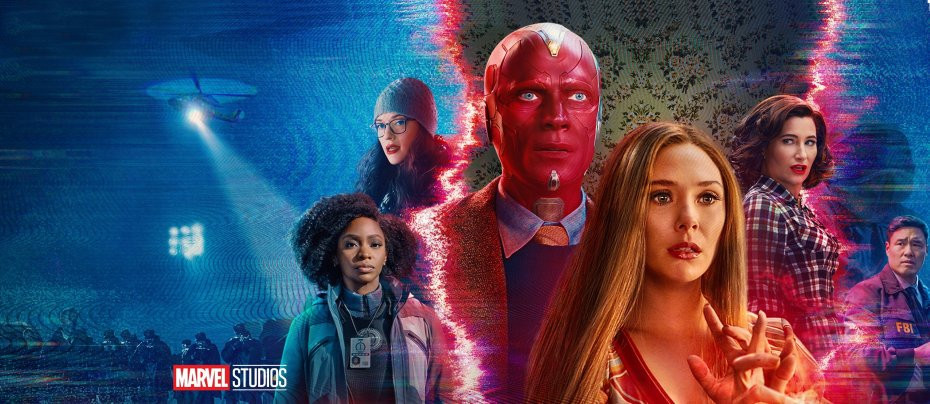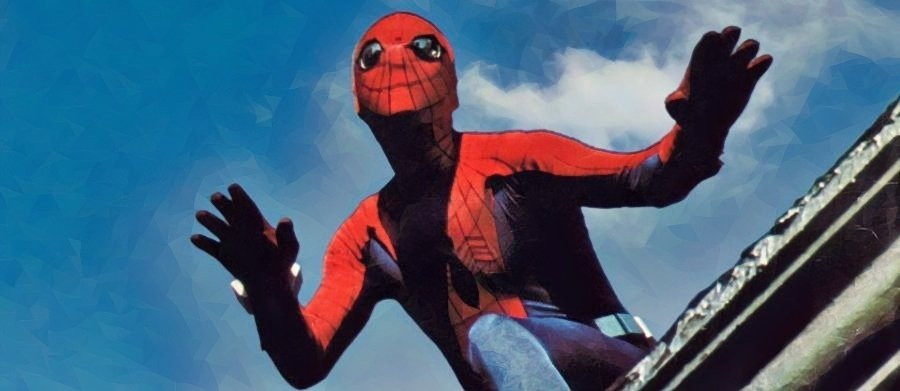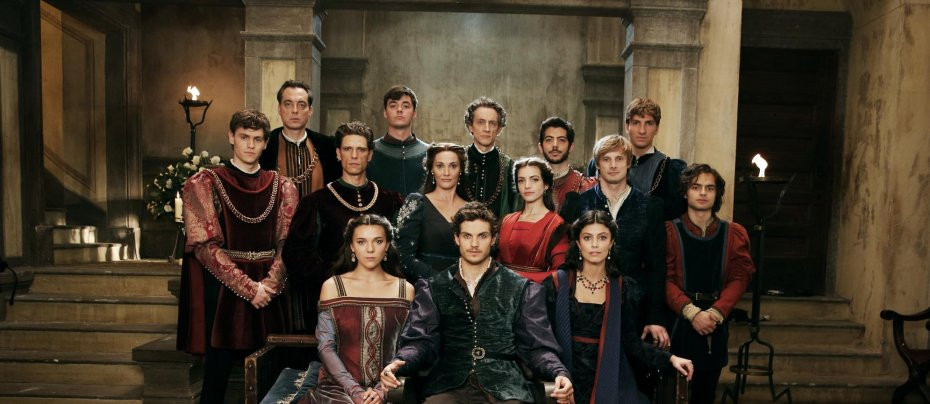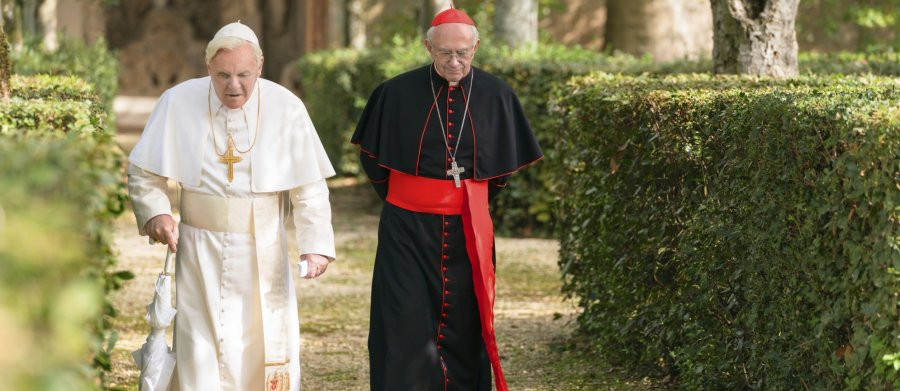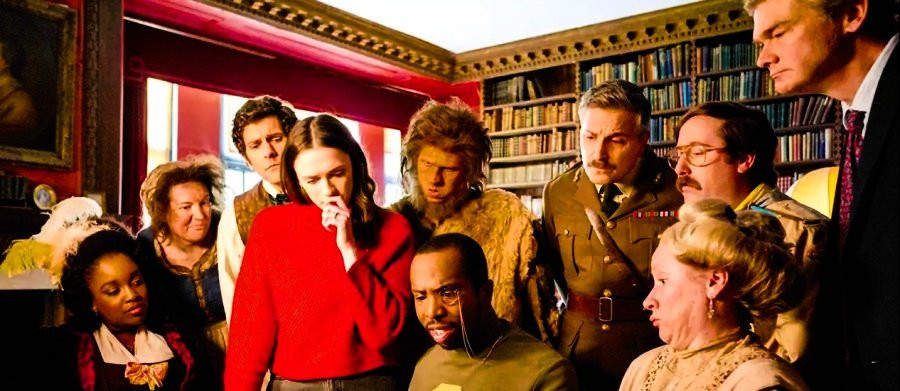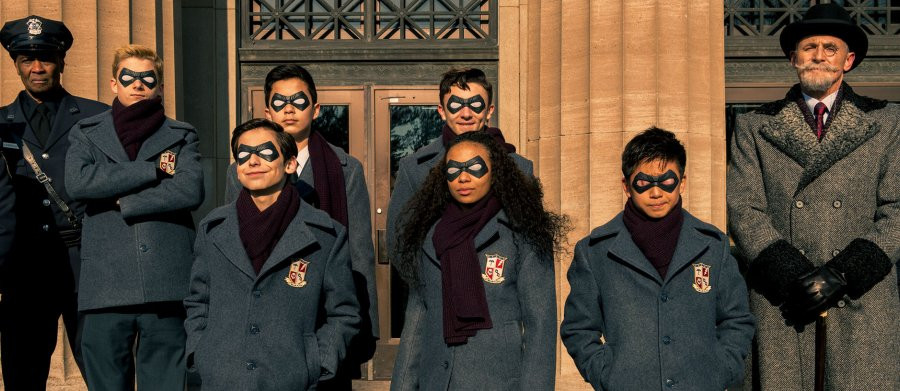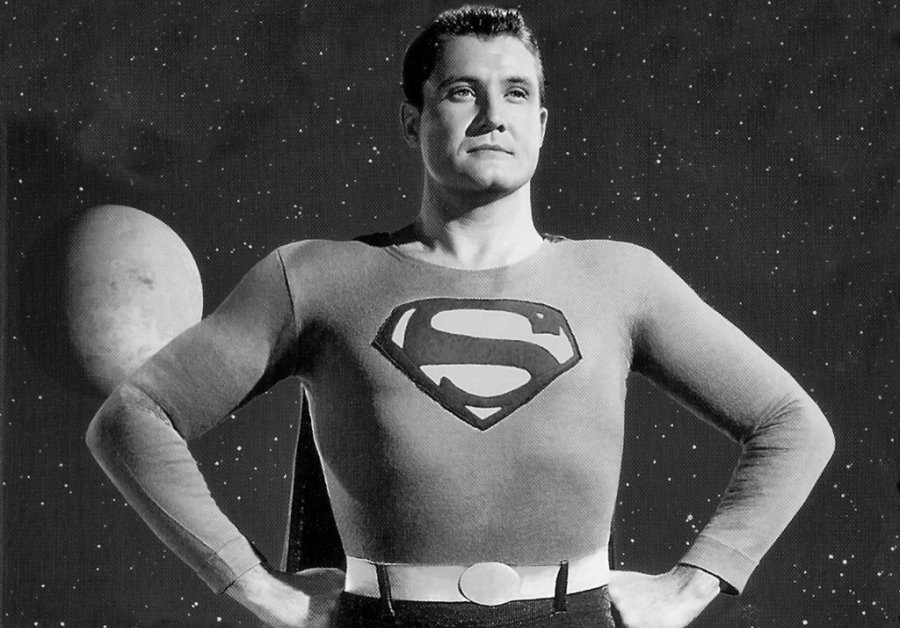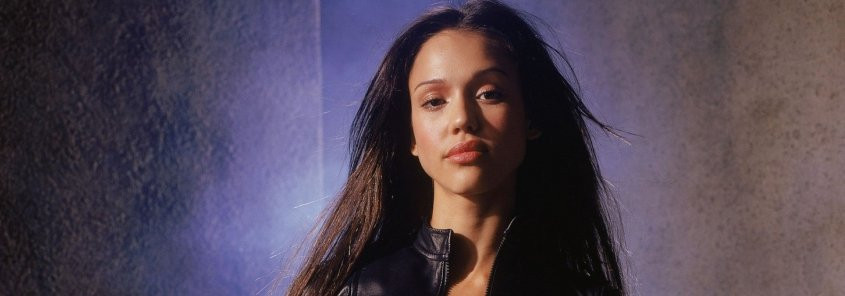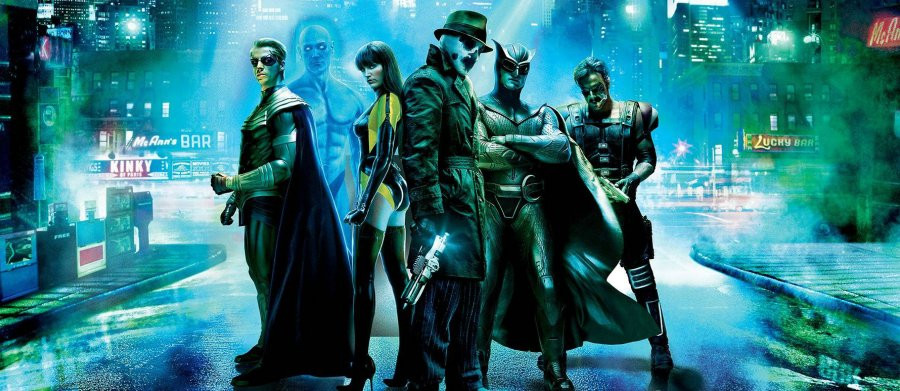
Watchmen
2019 - United StatesReview – Daniel Tessier
In 1986, writer Alan Moore and artist Dave Gibbons created one of the finest comicbook series and graphic novels of all time. Watchmen took the superhero genre and looked at it through a dirty microscope. Taking the concept of a world in which superheroes exists and extrapolating from a realistic viewpoint how both personal and political lives would be affected, Watchmen was one of the most mature and intelligent comicbooks of its time. Its legacy can be felt throughout the many adult-pitched, semi-realist comics available today, many of which have been adapted for the screen (up to and including current hits such as The Umbrella Academy and The Boys).

Watchmen's journey to the screen has been more checkered, with 2009's cinema adaptation meeting very mixed reviews (being somehow both too faithful to the source material and changing the wrong elements, although I'd go so far to say that the ending is handled a little better on screen). HBO began negotiations with DC Comics in 2015 with a mind to making a television adaptation, initially approaching Zack Snyder, the director of the film, to direct. Eventually, the network approached Damon Lindelof, who had films such as Cowboys & Aliens, Star Trek Into Darkness and Tomorrowland and the popular series Lost under his belt, and who would also develop the dark fantasy series The Leftovers for HBO.
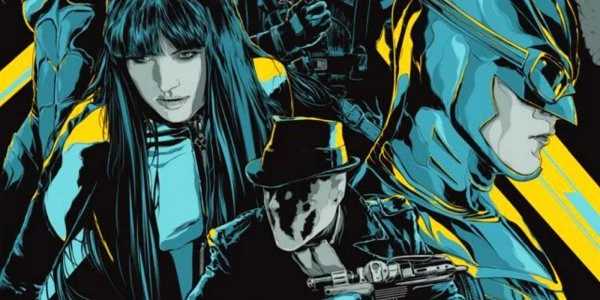
While Moore is famously unhappy with any and all adaptations of his work and has cut all ties with DC, Gibbons was happy to work on the series with Lindelof, having had no involvement in DC's own recent continuation of the title. Lindelof's approach is far more interesting than a straight adaptation; rather, it's a continuation of the story from the original comicbook, revisiting the world of Watchmen decades later in the present day. While understandably this has disappointed some purists, it's perhaps the most respectful way to deal with the source material. After all, there's no way to adapt a comicbook (or a novel, play or film) for television without making considerable changes. By producing a follow-up, the original story is intact. On the other hand, it does make it harder for someone new to the story to follow events. There's a great deal of foreknowledge expected of the viewer if they are to fully understand the story.
The original Watchmen was a product of late Cold War attitudes, examining the culture of the West, particularly the United States, as it existed in opposition to the East. There was a particular look at the actions of the American military as it waged war in Viet Nam. Watchmen exists in an alternative history where the twentieth century progressed along similar but different lines to real life, with Nixon serving three terms as President and the war in Viet Nam resulting in victory for the United States. All this is a result of superheroes first appearing in the 1940s, continuing through to what was then the modern day, providing the US with a more powerful force to engage with the world.

Lindelof – who described the series as a "remix" – brings the setting up-to-date, dealing with the fallout of the events of the comic but also focusing on other issues of American history. While the Vietnam War (or as the Vietnamese call it, the American War) is still addressed, with Viet Nam itself remaining an American state in this history, there's far more focus on Black history in the US. This is, of course, an ongoing source of turmoil in the US, and this is a story that could have been told at any time during the last few decades. However, the release of the series in the last quarter of 2019 makes it particularly timely. Watching it in 2020 has an added resonance, with the real US gripped by protests against the violent treatment of black people by the police, in the wake of the killing of George Floyd. It's a remarkable case of being exactly on the cusp of the zeitgeist. HBO made the series available for free on June 19th 2020, in recognition of Juneteenth, or Emancipation Day, one of the most significant days in Black American culture.

The series opens with the 1921 Tulsa race massacre, an event I'm embarrassed to say I had no knowledge of before seeing the series. However, the lack of general knowledge of the massacre, which claimed the lives of an estimated one hundred to three hundred people and the internment of six thousand black people on spurious grounds, is part of the reason Lindelof chose to focus on it. He had himself only become aware of it in 2014, reading about it in the essay "The Case for Reparations" by Te-Nehisi Coats in The Atlantic. In the universe of the Watchmen series, the government has indeed presented reparations to the survivors of the massacre and their descendants, something which has led to a surge in white racist attitudes. Lindelof assembled a diverse writing staff to work on the series, including many people of colour and a fifty/fifty ratio of men and women, to maintain a broad and informed perspective on the issues in the series.

The series is largely set in Tulsa, almost a century after the events of the massacre and 34 years after the original comic. The Tulsa Police were victims of an attack by the Seventh Kavalry, a Ku Klux Klan offshoot that has perverted the writings of the vigilante Rorschach into a racist text. During the "White Night," the Kavalry attacked police in their homes and killed most of the Tulsa Police force. As such, the police now keep their identities secret and wear masks while on duty. It's a clever look at both the risks to which police are subject and also the lack of scrutiny to which individual police in the US are subject. The visual of masked police was no doubt intended to be unsettling, but watching in 2020 it seems so unremarkable that it has to be pointed out. In only a few months, the wearing of masks has become so ubiquitous it's completely unremarkable.
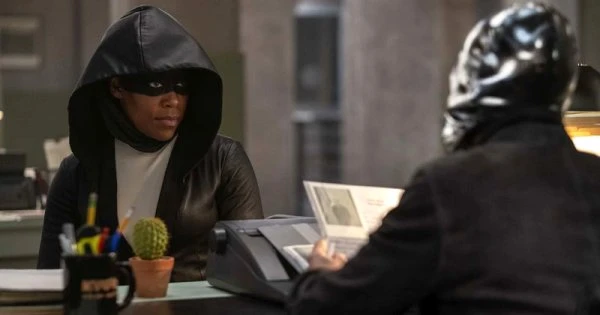
The series balances its roster of characters between new creations and ones from the original comicbook. The central character is Angela Abar, a black woman who is both a descendant of a massacre survivor and a survivors of White Night, and who grew up in the State of Vietnam. In this timeline, costumed vigilantes have been outlawed, and the only way for a superhero to legally exist is as a sort of special police agent. Angela is a Tulsa Police detective who operates under the guise of Sister Night, based on a blaxploitation nun character. Angela's story is the crux of all the events of the series, and her importance to major events becomes more apparent as the series progresses. Angela is played by Regina King (The Leftovers, Big Bang Theory), who gives an exceptional performance, grounding and humanising the events of the series. Angela is married to Cal Abar, played by Yahya Abdul-Mateen II (Black Mirror, Aquaman, Us). Cal at first appears to be a ordinary but sympathetic husband, but his importance to the larger story becomes clear over time, and to say more would ruin one of the most remarkable reveals in the series.
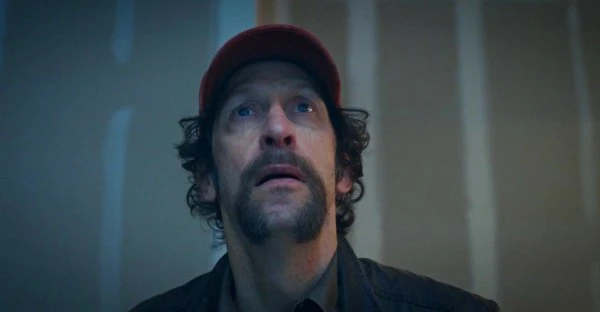
The Tulsa Police also include Wade Tillman, aka Looking Glass, a survivor of the apocalyptic events that ended the comic series and riddled with paranoia. Tim Blake Nelson (Dallas & Robo,
The Incredible Hulk) is excellent in the role, both unsettling in his eccentricity and entirely sympathetic. Veteran actor Don Johnson (Miami Vice) plays Judd Crawford, the Chief of Police and another survivor of White Night, whose motives are immediately questionable. Investigating the events in Tulsa is Laurie Blake – the second Silk Spectre in the comic – now an FBI agent who has become a member of the Anti-Vigilante Taskforce. Played by Jean Smart (Designing Women, Samantha Who?, Legion), she's the human face of the original comic series and our most tangible tie to those events.
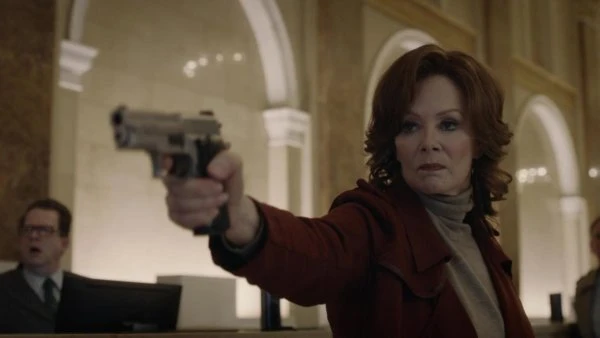
However, she isn't the only character to be carried over. Legendary British actor Jeremy Irons (Brideshead Revisited) plays Adrian Veidt, formerly Ozymandias, "the most intelligent man in the world." Playing the part with a broad American accent, Irons portrays Veidt as a cold but sardonic figure. He lives in exile in a huge country estate, waited on by two servants (Sara Vickers and Tom Mison), but this is only the surface appearance. The science fiction side of the story gradually unfolds as truly bizarre events and images occur at Veidt's estate, leading to further revelations as the series progresses. His story runs in parallel to the main plotline, only connecting at the end. Veidt's business interests have been bought up by the mysterious and sinister Lady Trau, who has her own sinister plans that eventually intersect the plot. Trau is played by Hong Chau (Downsizing), an actress of Vietnamese descent who gives a chilling performance.

Most vital to the events playing out is Will Reeves, Angela's grandfather (unbeknownst to her), who appears in her life and catalyses events. In the present day, the elderly Will is played by Louis Gossett Jr. (Roots, Enemy Mine), who gives the character power and confidence in spite of his physical infirmity. Jovan Adepo (Jack Ryan, The Leftovers) plays the younger Will, in some of the most powerful and moving depictions of Black American life in the twentieth century seen on television in years. Adepo's portrayal is less controlled and more vulnerable than Gossett's, yet recognisably the same confident and driven character. In an ingenious link to the original book, Will is revealed to be the true identity of Hooded Justice, the original masked hero who inspired all those who followed in the alternative history. This is a vital addition to the mythology of the original Watchmen comicbook, taking an opaque and mysterious character and creating an identity that works thematically and dramatically.
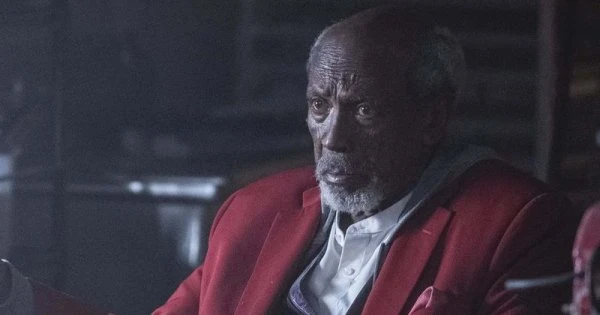
The series, over the course of only nine episodes, presents a story that at first appears sprawling but is revealed to be incredibly tightly plotted. With some truly excellent direction by Nicole Kassell, Stephen Williams and others, the series is visually arresting but always in the service of its surprising and affecting story. Combining real world concerns with the sci-fi trappings of the comicbook world, the series ties into the original book in unexpected ways while creating something entirely new. It's impossible to analyse the plot closely without spoiling the revelations that make it so gripping, but the themes of the story are clear. While Black history and experience are its most essential part, there's a deeper theme here, of powerlessness and the abuse of power. It's a truly remarkable production.
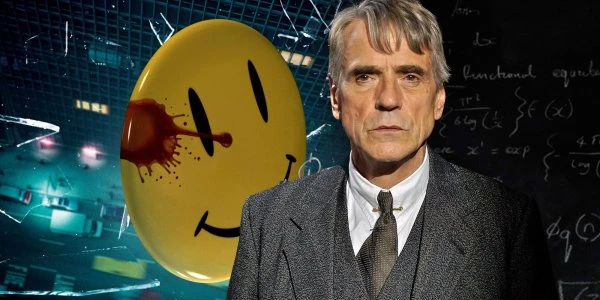
Watchmen was originally intended as an ongoing series, but Lindelof has openly declared that he has told his story and will not be returning. While there is scope for continuation, the story is so self-contained and well-structured that there's no need to continue it. That said, Lindelof has said he's happy for another producer to continue or add to his story in a second season, using the opportunity to tell their own story. In a surprising show of restraint, HBO have reclassified it as a limited series. There are currently no plans for a second season, although the network have confirmed that the possibility of future instalments remains. While it would no doubt be fascinating to see further exploration of this world, it's hard to see how a second season could live up to the first. But then, that's what many would have said about the comicbook.
Seen this show? How do you rate it?
Seen this show? How do you rate it?
Published on October 17th, 2020. Written by Daniel Tessier for Television Heaven.


